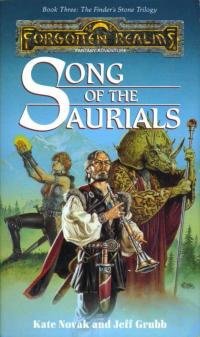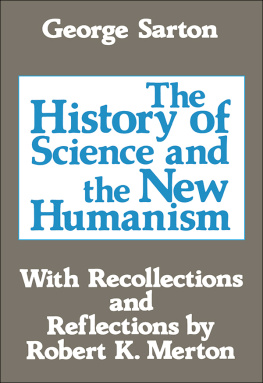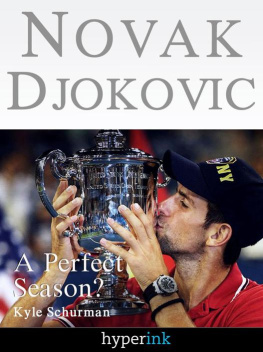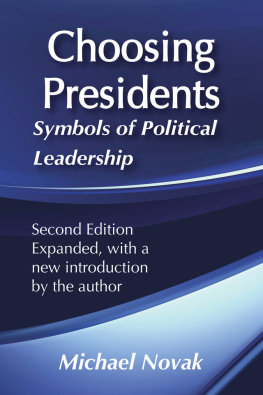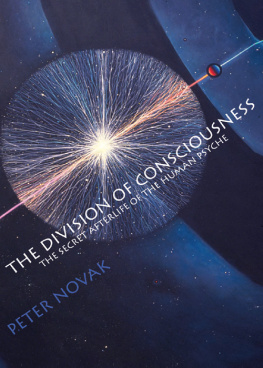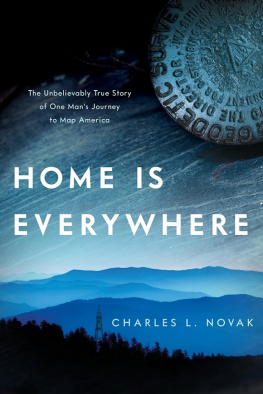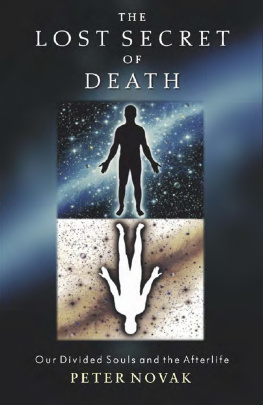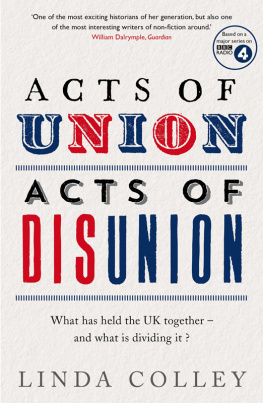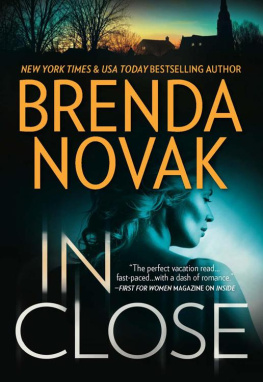THE ODYSSEY AND DR. NOVAK

Copyright 2018 by Ann Colley
All rights reserved. No part of this publication may be reproduced, distributed, or transmitted in any form or by any means, including photocopying, recording, digital scanning, or other electronic or mechanical methods, without the prior written permission of the publisher, except in the case of brief quotations embodied in critical reviews and certain other noncommercial uses permitted by copyright law. For permission requests, please address She Writes Press.
Published May 22, 2018
Printed in the United States of America
Print ISBN: 978-1-63152-343-4
E-ISBN: 978-1-63152-344-1
Library of Congress Control Number: 2017955635
Interior design by Tabitha Lahr
For information, address:
She Writes Press
1563 Solano Ave #546
Berkeley, CA 94707
She Writes Press is a division of SparkPoint Studio, LLC.
Names and identifying characteristics have been changed to protect the privacy of certain individuals.
To Alice and Herbert Rowe
CONTENTS
INTRODUCTION:
THE ODYSSEY
Sing to me of the person, Muse, the person of twists and turns, who through the touch of a hand is fated to travel from her native land over the boundless earth and across the rush of gusting winds into regions where she knows not the language nor the way of life.
Adapted from Book I of The Odyssey
Looking out of the planes window at the endlessly starry skies, like Telemachus, I wonder what has possessed me. It is late August 1995. Having abandoned the familiar routines of my life in Buffalo, I am on my way to Poland where for the coming year I shall lecture in English at the University of Warsaw. All night long, wrapped in a fleece, when not surrendering to the enticing oblivion of sleep, I weigh my chosen course and occasionally assuage my anxiety by leafing through a pamphlet on Polish etiquette. Did you know that in polite Polish society, it is thought improper for a woman to walk down the street with her hands in her pockets?
Knowing scarcely any Polish after a prefatory two-week language course that has taught me little beyond how to utter a greeting and how to ask the way, I worry about how I am to make sense of my new surroundings. Condemned to chart my course through either the veil of translation or the hesitating guidance of a nonverbal gesture, such as a telling, subtle turn of a hand, I long for a bright-eyed Athena, to reassure me that some of the words youll find within yourself, / the rest some power will inspire you to say (The Odyssey). Irving Massey, my multilingual partner, is not to join me for another month.
Five years pass, and again I leave the customary rhythms and language of Buffalo to embark on a years journey to Ukraine, a country that initially is even less familiar to me than Poland had been. I am to join the Foreign Literature Department at Taras Shevchenko University in Kiev. This time I have received no language instruction at all. To make matters worse, I have no practice in reading the Cyrillic alphabet. As a result, worry and discomfort are once more my traveling companions, but, as before, they do not conspire, like Aeolus, to blow me off course and tear to shreds the sails of my curiosity and wreck my desire to be there. My insecurities might loose the sack and let all the winds burst out, but I grit my teeth and hold firm to my lifelong fascination with that part of the world. Ever since childhood Central and Eastern Europe have intrigued, if not bewitched, me. Not possessing the ability to enter these cultures through the sounds and words of their language, I must tread the land and see things for myself.
What follows is a composite portrait of Poland in 1995 and Ukraine in 2000. During these years, both countries are, in their own ways, not only still dominated by the shadows of their pasts (their remembrances of war and the Holocaust) but also suspended between one mode of life and another. Having gained relative autonomy after the collapse of the Soviet Union in 1991, each is trying to chart its course. Caught between its old loyalties to Soviet rule and its increasing devotion to a Westernized economy, Poland is unsettled yet gradually realizing its entrepreneurial dreams. Ukraine, on the other hand, contends with its continuing dependency upon Russia as well as with its own internal quarrels. In spite of these tensions, in 2000, many Ukrainians are optimistically working toward forming more active connections with the West. They have hopes of joining the European Union. Few are yet explicitly imagining the deadly insanity of open civil conflict between Ukrainian nationalists and pro-Russian separatists. Nor are they expecting that, in just over a decade, Russian troops will seize Ukrainian territory and take back Crimea as well as invade eastern parts of the country. For the moment, stillness possesses the nation. All is relatively quiet and stable.
The resulting collage of my sometimes-solitary life and travels during my tenure in Poland and Ukraine draws upon materials that roughly mimic Wordsworths spots of time, for this book assembles those passing, often seemingly insignificant, sounds and sights that remain in substantial lineaments and still invigorate the mind. Sad, absurd, aesthetically pleasing, ugly, painful, humorous, endearing, discordant, frustrating, reassuring, distressing, and often trivial, these spots of time do not fall prey, I trust, to the sterility of hollow generalizations. Rather, through their multitextured, multilayered, and overlapping particularity, these episodes remind one that a place is as intricate and as varied as the people and the landscape that structure its province. Never disowned by memory, these collected moments, like the long dry wind, still blow through my ears and beg to be recorded.
CHAPTER 1:
SEED TIME
There are in our existence spots of time, Which with distinct preeminence retain A renovating Virtue...
Wordsworth, The Prelude
Before I commence the narrative of my experiences in Poland and Ukraine, I must first pause and return to the origins of my journey to these countries, to the seed time of my life. Most particularly, I need to revisit the day in 1946 when, as a child, I met Dr. Novak. It was this indelible moment that was to launch my curiosity about Central and Eastern Europe as well as to send me on my subsequent travelshence the books title, The Odyssey and Dr. Novak.
ENGLAND, 1946-53
This is where the odyssey begins. The time is a warm English summer afternoon in 1946. The place is the front garden of the Unitarian parsonage situated in a modest town barely six miles north of Manchester. Holding my six-year-old hand is Dr. Novak, the head of the Unitarian movement in Czechoslovakia. He has come, perhaps (what does a child know?), to talk with my minister father about such matters as the postwar recovery in Prague. Four years earlier, the Nazis had murdered Dr. Novaks predecessor. Behind us, rhododendron bushes bloom; a garden wall half conceals a row of unkempt trees. Then there is nothing. The wreckage has been removed. No longer can one catch a glimpse of the seventeenth-century dissenting chapel peering through the oaks limbs, for, during the night of December 21, 1940, German incendiary bombs destroyed this historic building.

While air raid sirens wailed in the dark, my parents, protecting a ten-month-old child and waiting for their own destruction, crouched in the cupboard under the stairs of the parsonage next door. On that same night, another incendiary bomb fell on the Victorian Sunday school building across the road, but because the device miraculously landed in an open toilet bowl, nothing happened. (Later, during the mid-1950s, when this building finally crumpleda victim of a sinkholeremembrances of wartime social gatherings, as well as the sounds of young nursery school children, descended, like Persephone, into the earth.) In the 1940s devastation was everywhere, for this community lay close to factories, mines, and textile mills. Ruins were a normal part of my childhood and played with my imagination.
Next page

